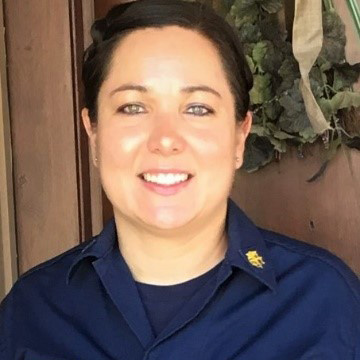This year’s Women’s Health Week theme, Forward Focus: Achieving Healthier Futures Together, reminds women and health care providers of the need for partnerships in building better health. For some women, this partnership may mean continuing with current healthy nutrition and activities. For others, this may mean making lifestyle changes or seeking out new healthy choices and activities. Whichever wellness path a woman may be venturing on, this week emphasizes the need for all women to take key steps to focus on better health. Health care providers can partner in the paths to wellness by encouraging annual wellness exams for important health screenings, ensuring proper attention to mental health, and assessing women’s safety, nutrition, and activity during routine visits. The Centers for Medicare and Medicaid Services provides a useful tool for both patients and providers to assess and plan individual women’s health care needs.
Blood pressure control is an essential factor in women’s health across the lifespan. The Indian Health Service Division of Nursing Services recently facilitated the purchase of over 800 automatic blood pressure machines for patient home use. This pilot-project allows prenatal and post-partum patients who require frequent monitoring to be more active in their health care, requiring fewer in-person trips for blood pressure monitoring. We plan to offer this capability to all patients identified as needing this equipment by their health care provider.

Dr. Tina Pattara-Lau and Dr. Dale McGee from the Phoenix Indian Medical Center participating in obstetric emergency simulation drills
The nursing services division also purchased 50 childbirth simulation models for hosting Advanced Life Support in Obstetrics courses and holding obstetrical simulations and emergency drills. In 2021, the obstetrics and gynecology department at the Phoenix Indian Medical Center held multidisciplinary obstetric emergency simulation drills to ensure safe continuity of care for pregnant patients in the emergency department. OB/GYN and pediatric staff provided education to over 70 emergency department providers, nurses, and support staff and simulated scenarios including precipitous delivery, postpartum hemorrhage, hypertensive emergency, eclampsia, and neonatal support. Emergency department staff reported an increase in their confidence in managing obstetric emergencies and an appreciation for the hands-on training. Emergency drills and simulations have proven effective in providing additional tools and training to safely triage, manage, and transfer pregnant women and newborns.
Two Bemidji Area Indian Health Service sites, Red Lake and Cass Lake, recently partnered with the Sanford health system, a Health Resources and Services Administration grantee in the Rural Maternity and Obstetrics Management Strategies program. This program aims to increase access to maternal and obstetrics care in rural communities and ultimately improve maternal and neonatal outcomes through four focus areas – obstetric service aggregation, care coordination, telehealth and specialty care, and financial sustainability. We look forward to seeing positive outcomes from this partnership and how the IHS can best duplicate these efforts on a larger scale.
Another HRSA initiative is the newly launched Maternal Mental Health Hotline, a confidential, toll-free hotline for expectant and new mothers experiencing mental health challenges. I encourage you to share this important number with you patients, family members and community. You can call or text 1-833-9-HELP4MOMS (1-833-943-5746) to connect with a counselor at no charge.
Please join us this week in raising awareness of women’s health needs and how we can best partner with patients, providers, and communities to raise the physical, mental, social, and spiritual health of American Indian and Alaska Native women to the highest level.



